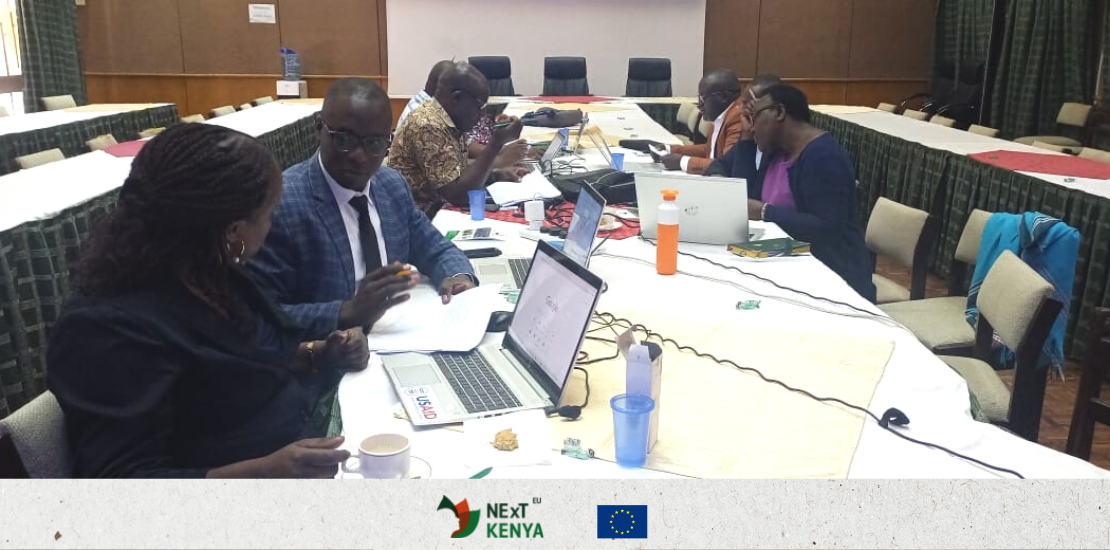Kenya: Improving KEPHIS communication and relationship dynamics with various stakeholders
- 20/02/2023
- Posted by: Sandra Borma
- Category: Kenya

Consistent and regular communication of official government information and international SPS requirements is a challenge to many agencies. There is therefore a need to ensure proactive, transparent and effective communication with stakeholders on market requirements and risks.
Communication is key for a National Plant Protection Organisation (NPPO): the Kenya Plant Health Inspectorate Service (KEPHIS) needs to communicate with agricultural industry players, government agencies/departments and donors. Communication can be informative but can also be used for specific targets to relay information to both internal and external stakeholders. Public communication is important but delicate. Government officials are confronted with four main constraints typical of the public sector compared to the private sector. These constraints are more complicated due to (i) Unpredictable environment; (ii) Lack of capacity to understand legal and formal restrictions; (iii) Low capacity on knowledge of procedures; and (iv) Lack of understanding on the diverse objectives.
COLEAD, through the NExT Kenya programme, supported KEPHIS to understand its communication dynamics through a needs assessment exercise. This was done both virtually and during a physical session to collect more information. Among the challenges identified were (i) communicating change; (ii) effective use of technology; (iii) delayed communication especially on market trends; (iv) management communication; (v) slow uptake of emerging change due to low responsiveness to communicated messages; and (vi) frequent negative/misrepresentation especially by media. These needs implied that there are serious rifts in communication, especially regarding equipping and communication of the message to the intended users. The proposed recommendations included: (1) capacity building for management on communication with their staff as well as media; (2) effective packaging of approaches dealing with destination markets; (3) development of institutional memory through archiving and data storage; (4) adoption of versatile and official approaches whilst communicating with stakeholders (both internal and external); (5) adoption of proactive engagement with the media; (6) development of key messaging whilst communicating on particular subject matters aligned with the KEPHIS strategic plan.
Subsequently, COLEAD, through the NExT Kenya project, organized a Training of Trainers (ToT) targeting regional KEPHIS managers within the phytosanitary services on 23–25 November 2022 at the KEPHIS offices. The aim was to majorly open the communication channels at the workplace through encouraging efforts towards healthy working relationships between all workers and their managers. Mid-level managers were the primary target of the training – they are key to the success of any organisation due to their strategic positioning between senior management and low-level staff members. They are central to the communication flows within the organization, with most communication flowing from and through them to other areas of the organisation, effectively causing actions to be undertaken to achieve set objectives for the organisation. Mid-level managers are the bridge between bottom-up, lateral, and top bottom communication within the organisation. They are well placed to cascade any learnings to all levels of the organisation given their interface with low-level staff and senior management.
 The training was tailored to equip mid-level managers with intuitive aspects of communication that can be shared with all levels of staff to inspire change at the workplace by unlocking information flow and nurturing a conducive environment for effective communication. Participants were sensitised to handle all types of communication with tact as they held leadership positions and needed to effectively communicate in order to inspire team spirit among staff members. The training also addressed issues of branding and brand communication to stakeholders to ensure that (i) external stakeholders interact with the brand and know KEPHIS services; (ii) services offered by KEPHIS are well known by existing and potential clients; (iii) visibility of regional offices is enhanced through KEPHIS leadership; (iv) regulatory aspects of the KEPHIS are well understood by the public for cohesive cooperation; and (v) food security and sustainable development are achieved through an informed public and development partners. Mid-level managers were motivated by witnessing the importance mid level management attaches to the training and to their development of communication skills. The training helped staff, including management, to ascertain the importance of KEPHIS in improving its capacity to tell its own success stories.
The training was tailored to equip mid-level managers with intuitive aspects of communication that can be shared with all levels of staff to inspire change at the workplace by unlocking information flow and nurturing a conducive environment for effective communication. Participants were sensitised to handle all types of communication with tact as they held leadership positions and needed to effectively communicate in order to inspire team spirit among staff members. The training also addressed issues of branding and brand communication to stakeholders to ensure that (i) external stakeholders interact with the brand and know KEPHIS services; (ii) services offered by KEPHIS are well known by existing and potential clients; (iii) visibility of regional offices is enhanced through KEPHIS leadership; (iv) regulatory aspects of the KEPHIS are well understood by the public for cohesive cooperation; and (v) food security and sustainable development are achieved through an informed public and development partners. Mid-level managers were motivated by witnessing the importance mid level management attaches to the training and to their development of communication skills. The training helped staff, including management, to ascertain the importance of KEPHIS in improving its capacity to tell its own success stories.
Finally, COLEAD supported the development of the KEPHIS communication strategy. The overall objective of this communication strategy is to improve current communication practices at KEPHIS to ensure they are fit-for purpose to enable KEPHIS to deliver on its phytosanitary mandate. The communications strategy applies current best practice templates and ensures all key components for the success of the strategy are analysed in detail. These include target audiences, key messages, communication tactics and a proposed implementation plan for some selected activities. The specific objectives of this strategy include:
- Raise the profile and visibility of the KEPHIS to the general public and especially at the grassroots level
- Exploit innovative and existing communications channels and techniques to maximise awareness and promote understanding of KEPHIS with its stakeholders in a bid to encourage more interaction and cooperation.
- Sustain and establish new relations and partnerships with the media to influence them to report positively on KEPHIS activities and its public mandate.
- Participate in worthwhile Corporate Social Sustainability initiatives to project KEPHIS as an institution that gives back to society and participates in community development through its corporate social responsibility programmes under corporate good governance.
- Maintain a corporate identity and perception for KEPHIS by undertaking a corporate re-branding of the organisation.
- Position KEPHIS as Kenya’s flagship centre for phytosanitary excellence through the continuous development of a Phytosanitary Centre of Excellence (COPE) curriculum for training and benchmarking with audiences in Kenya and abroad.
The KEPHIS regional management checked the strategy to validate it to ensure it was suitable for their communication needs. KEPHIS Principle Corporate communications officer, Ms. Catherine Muragori, believes that this document will be instrumental in enhancing the communication agenda within KEPHIS. It will also assist them to lobby for a communication budget to enable them tell stories both at the national and regional levels.
This activity is implemented by COLEAD and supported by the NExT Kenya (New Export Trade) programme, established in collaboration with the EU Delegation in Nairobi and Kenyan stakeholders.





